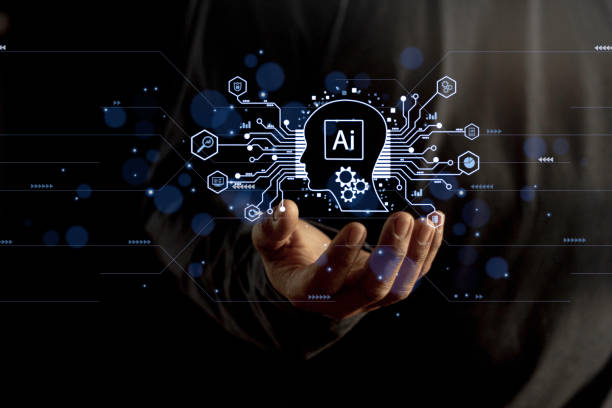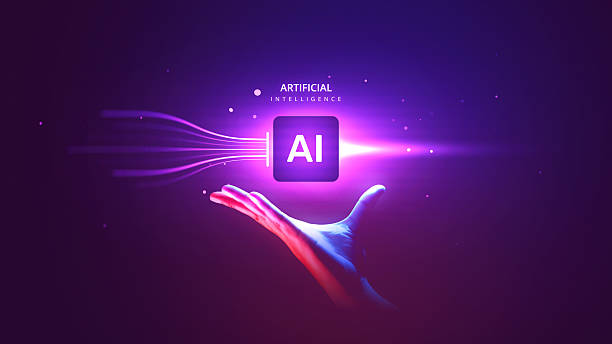What is an AI Assistant and What are its Applications?
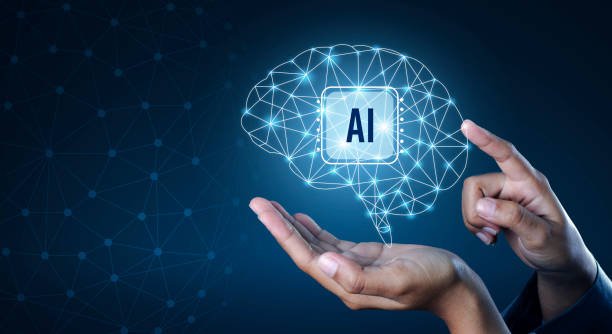
#AI_Assistant refers to software and systems that perform various tasks automatically or semi-automatically using artificial intelligence (AI).
These tasks can include answering questions, generating text, translating languages, summarizing texts, scheduling, and even creating works of art.
Artificial intelligence enables these assistants to improve their performance by analyzing data and learning from experiences, thereby helping users more effectively.
In short, an AI assistant is a virtual colleague that can help you in various fields using complex algorithms.
Common applications of AI assistants include answering customer questions on websites, generating content for social media, translating texts and documents, and providing personalized recommendations to users.
Additionally, AI assistants have numerous applications in specialized fields such as medicine, law, and engineering.
Are you worried about the low conversion rate of your online store and not achieving the desired sales?
Rasaweb is your specialized solution for having a successful online store.
✅ Significant increase in conversion rate and sales
✅ Professional and user-friendly design to attract customer satisfaction
⚡ Ready to transform your online sales? Get a free consultation!
Types of AI Assistants and Their Features
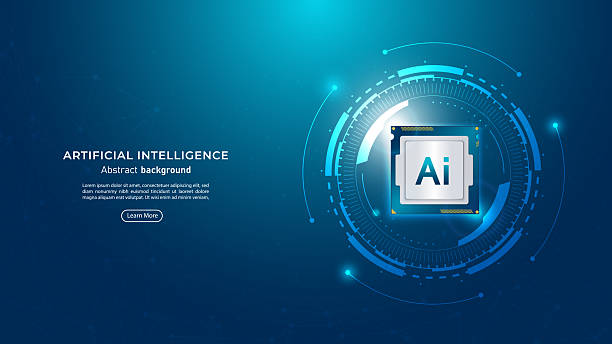
AI assistants come in various types, each with its own unique features and applications.
Some of the most common types include:
1.
Voice Assistants: Such as Siri, Alexa, and Google Assistant, which interact with the user through voice and can perform tasks such as playing music, setting reminders, and answering questions.
These assistants are usually embedded in smartphones, smart speakers, and other internet-connected devices.
Voice assistants work based on natural language processing (NLP) and can understand and execute voice commands.
2.
Chatbots: Computer programs designed to simulate conversation with users.
Chatbots are typically used on websites and messaging applications to answer customer questions, provide support, and perform simple transactions.
Chatbots can work based on predefined rules or using machine learning.
3.
Virtual Assistants: More complex computer programs that can perform a wider range of tasks.
Virtual assistants typically use a combination of AI techniques, including NLP, machine learning, and computer vision.
Examples of virtual assistants include Google Duplex and Microsoft Cortana.
4.
Specialized AI Assistants: These types of assistants are designed to perform specific tasks in a defined area.
For example, AI assistants in medicine can help doctors diagnose diseases and provide treatment.
In the field of law, AI assistants can help lawyers research cases and prepare legal documents.
Choosing the right type of AI assistant depends on the user’s needs and goals.
For example, if you are looking for a simple solution to answer customer questions, a chatbot may be sufficient.
But if you are looking for a more comprehensive solution to perform complex tasks, a virtual assistant or a specialized AI assistant may be a better option.
Advantages and Disadvantages of Using an AI Assistant

Using an #AI_Assistant has several advantages, but there are also disadvantages that should be considered.
Advantages include increased productivity, reduced costs, improved accuracy, and personalized service delivery.
However, there are also concerns about job loss, privacy issues, and the potential for misuse of this technology.
Advantages:
- Increased productivity: AI assistants can automate repetitive and time-consuming tasks, allowing employees to focus on more important tasks.
- Reduced costs: Using AI assistants can reduce labor, training, and support costs.
- Improved accuracy: AI assistants can perform tasks more accurately than humans, especially when it comes to processing large amounts of data.
- Personalized service delivery: AI assistants can analyze user data to provide personalized services and recommendations.
Disadvantages:
- Job loss: There are concerns that with the increasing use of AI assistants, many jobs will be eliminated.
- Privacy issues: AI assistants need to collect and process user data to function effectively, which raises privacy concerns.
- Potential for misuse: AI assistants can be used for malicious purposes, such as spreading misinformation or manipulating public opinion.
To benefit from the advantages of AI assistants and mitigate their disadvantages, it is necessary to use this technology responsibly and ethically.
Also, appropriate policies and regulations should be developed to regulate the use of AI assistants.
| Advantages | Disadvantages |
|---|---|
| Increased Productivity | Job Loss |
| Reduced Costs | Privacy Issues |
| Improved Accuracy | Potential for Misuse |
How to Choose a Suitable AI Assistant?
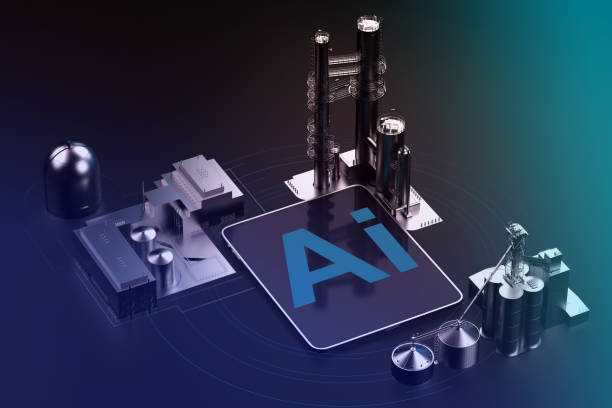
Choosing a suitable AI assistant depends on your needs and goals.
Before choosing, you should answer the following questions:
- What tasks do you want to assign to the AI assistant?
- How much budget do you have for buying or developing an AI assistant?
- How much technical knowledge do you have to use and maintain the AI assistant?
- How much data do you have to train the AI assistant?
After answering these questions, you can start researching the different types of AI assistants available in the market.
Pay attention to features, prices, and user reviews.
Also, make sure that the AI assistant you choose is compatible with your existing systems and software.
When choosing an AI assistant, also consider the following points:
- Reliability: Make sure the AI assistant you choose is reliable and can perform its tasks correctly.
- Security: Make sure the AI assistant you choose is secure and protects your data.
- Support: Make sure the company providing the AI assistant offers adequate support.
- Scalability: Make sure the AI assistant you choose can scale with your business growth.
By considering these points, you can choose a suitable AI assistant for your needs and benefit from its advantages.
Does your current corporate website not reflect your brand’s credibility and strength as it should? Rasaweb solves this challenge for you with professional corporate website design.
✅ Increased credibility and visitor trust
✅ Targeted attraction of more customers
⚡ Click to get a free consultation!
What will the Future of AI Assistants be Like?
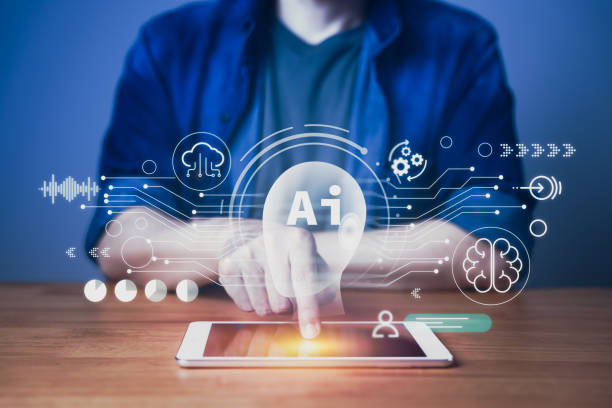
The future of AI assistants is very bright and full of potential.
With the advancement of technology, AI assistants will become smarter, more powerful, and more practical day by day.
It is expected that in the future, AI assistants will play a much more prominent role in our daily lives and help us perform various tasks.
The future of artificial intelligence will be at the service of humanity.
Some predictions about the future of AI assistants include:
- Greater integration with daily life: AI assistants will be integrated into all aspects of our lives, from home and work to cars and wearable devices.
- Increased learning capabilities: AI assistants will be able to continuously learn from their experiences and improve their performance.
- Development of emotional capabilities: AI assistants will be able to understand human emotions and respond appropriately to them.
- Creation of personalized AI assistants: Each individual will be able to have a personalized AI assistant designed to meet their needs and preferences.
However, there are also challenges in the path of developing AI assistants.
One of the most important challenges is to ensure that AI assistants are used responsibly and ethically.
Also, special attention should be paid to issues related to privacy and data security.
AI assistants can greatly benefit humanity.
Ethical Considerations in Using AI Assistants

As mentioned, the use of AI assistants entails important ethical considerations.
One of the most important of these considerations is protecting user privacy.
AI assistants need to collect and process user data to function effectively, which raises privacy concerns.
For example, voice assistants may record and store user conversations.
Therefore, companies providing AI assistants need to adopt transparent policies regarding the collection and use of data and allow users to have more control over their data.
#Ethics_in_AI is very important.
Another important ethical consideration is preventing discrimination.
AI assistants may make discriminatory decisions due to biases in training data.
For example, a facial recognition system may be less accurate at recognizing the faces of people with darker skin tones.
Therefore, training data needs to be carefully reviewed and biases prevented.
In addition, issues related to accountability should also be addressed.
If an AI assistant makes a mistake and causes damage, who will be responsible? Is the company providing the AI assistant responsible, or the user? These questions still do not have definitive answers and require further investigation and discussion.
Finally, it should be noted that AI assistants are tools that can be used for good or bad purposes.
Therefore, it is necessary to use this technology responsibly and ethically and to prevent its misuse.
AI assistants can be a good helper, provided they are used correctly.
Implementing AI Assistants in Business

Implementing AI assistants in business can have several benefits, including increased productivity, reduced costs, and improved customer experience.
However, implementing AI assistants requires careful planning and consideration of various factors.
The first step in implementing AI assistants is to define goals.
You should specify what problems you want to solve and what goals you want to achieve using the AI assistant.
For example, you may want to use a chatbot to answer customer questions on your website or a virtual assistant to manage the work schedules of your employees.
After defining the goals, you need to collect the data needed to train the AI assistant.
The data should be of high quality and fully cover your goals.
For example, if you want to use a chatbot to answer customer questions, you need to collect a set of relevant questions and answers.
Then, you need to choose a suitable platform for implementing the AI assistant.
There are various platforms for implementing AI assistants, each with its own unique features and capabilities.
Some platforms require less coding and are more suitable for non-technical users, while others provide more features for professional developers.
Finally, you need to train your AI assistant and continuously evaluate it.
Training AI assistants is typically done using machine learning algorithms.
After training, you should continuously evaluate the performance of the AI assistant and improve it if necessary.
AI assistant in business increases profitability.
| Stage | Description |
|---|---|
| Defining Goals | Specifying the problems you want to solve and the goals you want to achieve. |
| Collecting Data | Collecting the data needed to train the AI assistant. |
| Choosing a Platform | Choosing a suitable platform for implementing the AI assistant. |
| Training and Evaluation | Training the AI assistant and continuously evaluating its performance. |
AI Assistants and Their Impact on Jobs
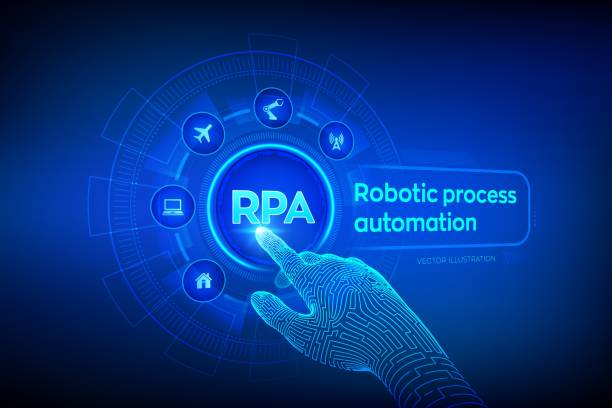
#AI_Assistant can have a significant impact on jobs.
On the one hand, AI assistants can automate repetitive and time-consuming tasks, allowing employees to focus on more important tasks.
This can lead to increased productivity and reduced costs.
On the other hand, there are concerns that with the increasing use of AI assistants, many jobs will be eliminated.
AI assistants are not competitors to humans and help them.
Studies have shown that some jobs are more at risk of automation than others.
Jobs that involve repetitive and routine tasks are more likely to be replaced by AI assistants.
Examples of these jobs include telephone operators, office workers, and truck drivers.
AI assistants upgrade the workforce.
However, it should be noted that AI assistants do not necessarily mean job loss.
In many cases, AI assistants can help employees perform their tasks more effectively and learn new skills.
Also, the creation of new jobs in the field of artificial intelligence is likely.
For example, with the increasing use of AI assistants, the need for AI specialists, data scientists, and machine learning engineers will increase.
AI assistants increase job skills.
To benefit from the advantages of AI assistants and avoid their disadvantages, it is necessary to adopt appropriate policies and programs to train and prepare the workforce for the future.
These policies should include teaching new skills, providing training opportunities, and creating support networks for employees who are at risk of job loss.
AI assistants are powerful tools.
Is the current design of your online store causing you to lose customers and sales?
Rasaweb, with its modern and user-friendly online store design, is your solution!
✅ Significant increase in conversion rate and sales
✅ Creating a strong brand and gaining customer trust
⚡ Get a free online store design consultation from Rasaweb!
Challenges of Developing and Implementing AI Assistants
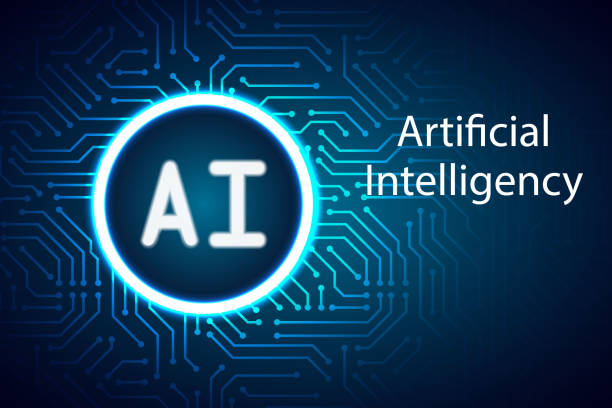
Developing and implementing AI assistants faces numerous challenges.
One of the most important of these challenges is the lack of training data.
AI assistants require a lot of data for training, which must be of high quality and relevant.
Collecting and preparing this data can be time-consuming and costly.
AI assistants require a lot of training data.
Another challenge is the shortage of AI specialists.
With the increasing use of AI assistants, the need for AI specialists has increased, but the number of these specialists is limited.
This shortage can hinder the development and implementation of AI assistants.
AI assistants require expert specialists.
In addition, issues related to security and privacy also create challenges.
AI assistants need access to sensitive data to function effectively, which raises concerns about security and privacy.
Appropriate security measures must be taken to protect this data.
AI assistants require high security.
Finally, ethical issues also create challenges.
AI assistants can make decisions that are discriminatory or unethical.
Attention needs to be paid to these issues and the misuse of AI assistants prevented.
AI assistants must be ethical.
To overcome these challenges, more investment needs to be made in artificial intelligence research and development, and the training of AI specialists needs to be prioritized.
Also, appropriate regulations need to be developed to regulate the use of AI assistants to prevent the misuse of this technology.
AI assistants require investment.
Key Points for Success in Using AI Assistants

To succeed in using AI assistants, you need to pay attention to the following key points:
- Define your goals: Before implementing an AI assistant, you need to define your goals and know what problems you want to solve and what goals you want to achieve using this technology.
- Collect the right data: Training AI assistants requires a lot of data that must be of high quality and relevant.
Collecting and preparing this data can be time-consuming and costly, but it is essential for success. - Choose the right platform: There are various platforms for implementing AI assistants, each with its own unique features and capabilities.
Choose a platform that is compatible with your needs and skills. - Continuously evaluate your AI assistant: After implementing the AI assistant, you need to continuously evaluate its performance and improve it if necessary.
- Pay attention to ethical issues: AI assistants can make decisions that are discriminatory or unethical.
Attention needs to be paid to these issues and the misuse of AI assistants prevented.
AI assistants require ethical considerations for success.
By following these tips, you can benefit from the advantages of AI assistants and avoid their disadvantages.
AI assistants are the key to success.
Frequently Asked Questions
| Question | Answer |
|---|---|
| What is an AI assistant? | An AI assistant is a software program that uses artificial intelligence to perform various tasks for users, such as answering questions, setting reminders, playing music, and managing calendars. |
| What are some of the most famous AI assistants? | Some of the most famous AI assistants include Apple’s Siri, Google Assistant, Amazon’s Alexa, and Microsoft’s Cortana. |
| How does an AI assistant work? | These assistants use Natural Language Processing (NLP) to understand user voice or text commands, and Machine Learning to improve performance and personalize responses. |
| What are the main uses of an AI assistant? | Main uses include setting alarms and reminders, playing music and podcasts, answering general questions, sending messages, making calls, controlling smart home devices, and providing weather or traffic information. |
| Can AI assistants speak with different accents? | Yes, many modern AI assistants have the ability to recognize and generate speech in different accents and languages. |
| What are the differences between an AI assistant and a chatbot? | AI assistants are usually more comprehensive and can perform a variety of tasks beyond answering text questions (such as controlling devices). Chatbots are designed more for text conversations on websites or messaging apps. |
| Is using an AI assistant safe? | Companies try to ensure data security, but there are concerns about privacy and storing voice data. Users should review their privacy settings. |
| What will the future of AI assistants be like? | In the future, AI assistants are expected to be smarter, more predictive and more integrated with everyday life and other devices, and be able to perform more complex tasks. |
| How can I activate an AI assistant? | They are usually pre-installed on smartphones and smart home devices. You can activate them by saying “Hey Siri”, “Ok Google” or “Alexa” and then giving your command. |
| Can an AI assistant help me learn? | Yes, it can help with learning by providing information, defining words, translating texts, and even solving math problems. It can also play educational podcasts for you. |
And other advertising agency services Rasa Web in the field of advertising
Smart SEO: A combination of creativity and technology to increase sales by customizing the user experience.
Intelligent Custom Software: An effective tool for attracting customers with a SEO-driven content strategy.
Smart Reporting: An exclusive service for growing website traffic based on real data.
Smart Customer Journey Map: Designed for businesses looking to grow online by customizing the user experience.
Intelligent Website Development: A combination of creativity and technology for digital branding through precise audience targeting.
And more than a hundred other services in the field of internet advertising, advertising consulting and organizational solutions
Internet Advertising | Advertising Strategy | Advertisement Report
Resources
What is the application of artificial intelligence?
,What is artificial intelligence and how does it work?
,What size is artificial intelligence in 2023?
,Increasing the speed of artificial intelligence in life
? Be powerfully and impactfully present in the online world with Rasaweb Afrin, specializing in corporate website design, SEO, and digital marketing.
📍 Tehran, Mirdamad Street, next to the Central Bank, South Kazerun Alley, Ramin Alley No. 6
“`

